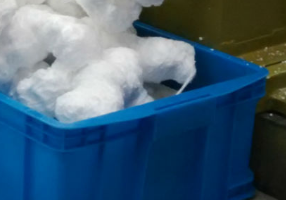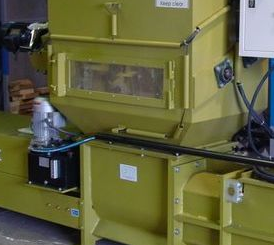The improved polystyrene recycling methods
People are getting more and more aware of the seriousness of the pollution and the importance of a clean and eco- friendly environment. People are struggling to find solutions to solve the problem. Many people are taking real actions.
It costs a lot for many cities to add expanded polystyrene to the curbside recycling program. Some recycling companies agree to a long-term contract to process the foam and pay the city for it; governments impose a ban on most single-use EPS food containers, frustrating those in the EPS industry who see this defeat as a setback in meeting the growing demand for the material.

Since polystyrene has been invented, people around the world have engaged in a love affair with expanded polystyrene or foam. The material pervades our convenience-seeking society and has become nearly impossible to avoid. It holds takeout meals, buffers hands from scalding coffee, insulates pipes, and cushions bike helmets.
That sentiment has turned to disapproval in some quarters over time, and calls to eradicate foam have intensified recently. Environmentalists have rankled at the mention of EPS for decades, claiming it’s difficult or impossible to recycle; there are few markets for post consumer material; and it does not break down in landfills.
However, people do not need to worry too much about these materials since they are recyclable, those difficult recycling claims are outdated and incorrect. More and more recycling companies are currently recycling EPS or manufacture renewable products from waste foam and other polystyrene waste products.

All of the practical actions are aimed at improving the cities’ residential recycling rate, which has dropped in many years. Many cities have announced plans to expand recycling services and ban the certain plastic-foam containers. Some of these cities even passed legislation to protect the environment. People can put different categories of trash in the bins and aside space in the communities and beside the large apartment buildings.
Some recycling companies provide material recycling facilities such as compactors and densifiers that can compress or melt the foam. Recycling machines greatly increase the cost-effectiveness of collecting and redistributing EPS materials. INTCO is a professional recycling company which aims at recycling and making different kinds of waste plastic into renewable useful products.
